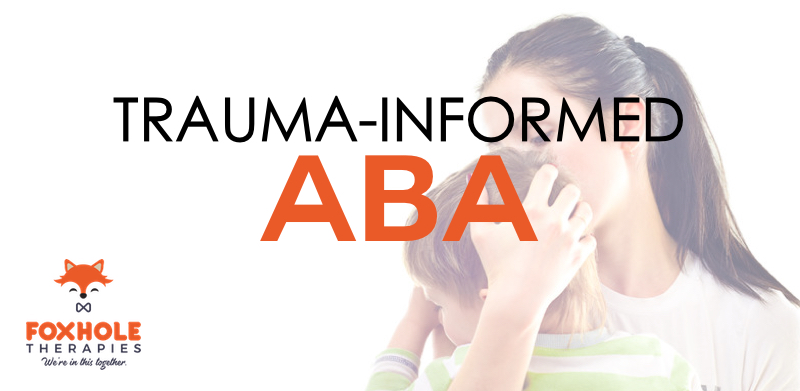
What is Trauma-Informed ABA Therapy
Acknowledging the life history of a person and its impact on behavior is a vital part of understanding the whole person and providing individualized services. Trauma-Informed ABA recognizes the importance of acknowledging trauma that may have occurred during a client’s life and understanding how that trauma affects their behavior.
There is a new push in the field of ABA to provide trauma-informed care. This movement has added so much value to our field. A trauma-informed approach to ABA focuses on client assent, adapting programming to avoid potential triggers, increasing opportunities for clients to make choices, and monitoring emotional responses to services.
Foxhole’s Trauma-Informed Approach
At Foxhole Therapies, we believe that taking a trauma-informed care approach to ABA is imperative to caring for our clients well. Here’s how we implement trauma-informed practices every day:
Client Assent
We never implement programs without client assent. If a client indicates that they do not want to work on a task or skills, we work to make these tasks more enjoyable and valuable to them rather than forcing them to comply.
Adapting Programming to Avoid Potential Triggers
If there is any language, items, places, etc. that could trigger past trauma, we adapt our programming to avoid them or work to repair these things with positive experiences.
Choices
Our goal is always to give our clients as much autonomy over their lives as possible. This includes giving clients opportunities to make choices about activities, tasks, toys, seating arrangements, etc. Our clinicians are trained to allow honor choices whenever possible and be flexible in allowing clients to change their minds. In a world where our clients are consistently being told what to do, we see it as our responsibility to give them autonomy wherever we are able.
Monitoring Emotional Responses
In ABA we take data on just about everything. At Foxhole Therapies, that also includes emotional responses. Any time a client shows a negative emotional response to an activity, task, person, etc. we record this immediately and make arrangements to alleviate the negative emotions. A long standing myth within behavior analysis is that feelings don’t matter, but we vehemently reject this idea and so does the emerging research in this area.
Contact Our Team Today!
Our greatest responsibility as behavior analysts is to protect the joy and autonomy of those we serve. This means using a trauma-informed approach to care for our clients and being flexible to meet their emotional needs as well as behavioral needs. For more information about how we use these approaches with our clients, please reach out to us at . One of our clinicians would love to talk with you.







